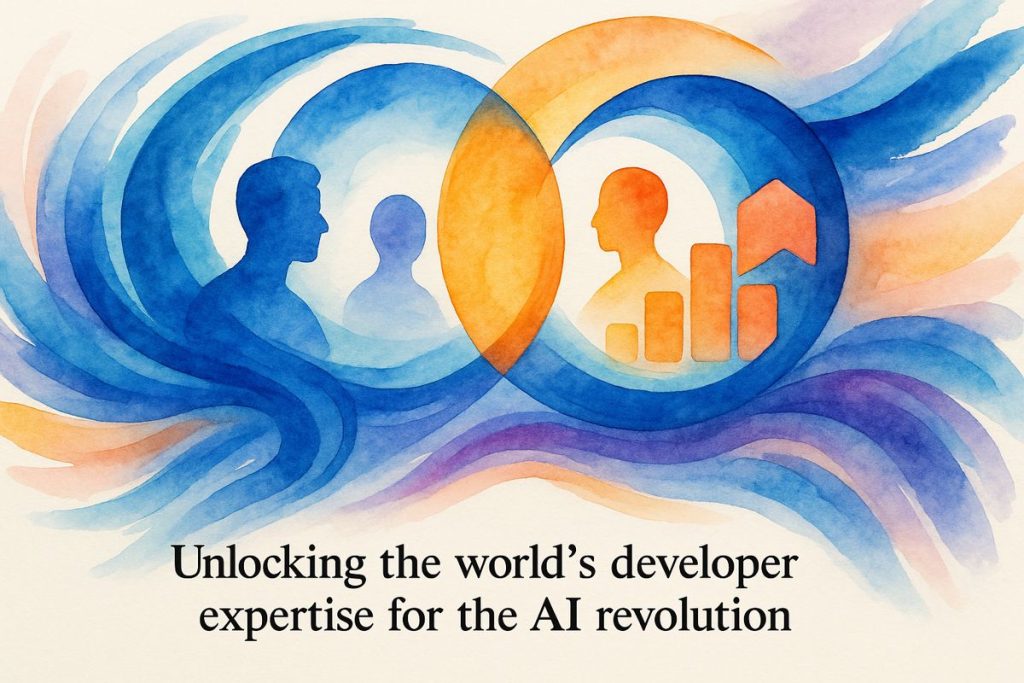Stack Overflow is now part of the Databricks Marketplace, letting users tap into a huge collection of programmer questions and answers right inside their data and AI tools. This means anyone can add real, peer-reviewed coding wisdom straight into their machine learning and analytics projects without messy technical steps. With secure, real-time sharing, teams can spot trends, train smarter AI, and fix problems faster using fresh knowledge from the world’s top developers. It’s like giving your computer a direct line to expert advice, helping people and companies make smarter choices and build better tech.
What does the integration of Stack Overflow into Databricks Marketplace mean for users?
The integration of Stack Overflow into Databricks Marketplace allows users to access Stack Overflow’s vast, peer-reviewed technical Q&A data directly within Databricks. This enables real-time, governed data sharing, enriching AI and analytics workflows with developer insights, trend analysis, and enhanced machine learning model training—all without complex ETL processes.
Opening Gambit: A New Mind Meld
The year is 2025, and the digital air is thick with the scent of innovation—like fresh coffee with a faint whiff of ozone right before a summer thunderstorm. Stack Overflow, venerable hive mind of programmers everywhere, has waltzed into the Databricks Marketplace. What does this marriage mean? Well, Databricks users now get a direct line to one of the largest living palimpsests of developer Q&A, a corpus so sprawling it makes the Library of Alexandria look like an IKEA instruction leaflet.
I have to admit, when I first read the headline, my initial emotion was skepticism (it’s easier to sniff at these things than to swallow the hype). But after a double-take—and a second espresso—I realized: this is more than just a corporate handshake. It’s an open API for collective wisdom, piped straight into the analytics and AI bloodstream of real organizations. Which, if you’re the sort who gets giddy at the mention of a new protocol, is sort of exhilarating.
To state the obvious (but sometimes the obvious needs stating): Databricks users can now tap directly into Stack Overflow’s community-forged technical archive without building convoluted ETL pipelines or nagging their data engineers. The backbone here is Delta Sharing, an open, hyperspectral protocol that lets organizations securely and scalably share governed data across clouds. No more ferrying CSVs like ancient couriers—this is real-time, governed access. There’s a kind of satisfying click when two standards like these interlock.
Why Should Anyone Care? The Practical Upshot
Let’s not get lost in starry-eyed metaphors—practically, what’s different? For one, Stack Overflow isn’t just a forum; it’s an ever-evolving Zeitgeist, with technical trends, upvotes, and accepted answers forming a living topology of developer cognition. Now, thanks to the integration with Databricks Marketplace, this knowledge is queryable, mashable, and ready to be sprinkled into machine learning workflows.
Consider this: an architect at a fintech startup—let’s call her Priya—can now train generative AI models on Stack Overflow’s debates about, say, the intricacies of OAuth2 or the quirks of PostgreSQL. The result? More context-aware code completion, explanations with a human touch, and fewer dead-ends in the labyrinth of debugging. It’s like giving your AI ears that have spent years eavesdropping on the best and worst of developer conversations.
But the utility doesn’t stop at code generation. Enterprises can now perform trend analyses, scrutinize the waxing and waning of technologies, or even correlate Stack Overflow activity with their own project cycles. It’s a bit like holding a hyperspectral lens to the churning sea of developer sentiment—what’s rising, what’s sinking, and where the next iceberg might lurk.
And the texture of this data? Peer-reviewed Q&A, user-generated tags, upvotes—each a fingerprint in the palimpsest. The effect is almost synesthetic if you squint: code smells, patterns, and anti-patterns, all floating to the surface.
Marketplace Mechanics: Under the Hood
Now, I’ll confess, I once underestimated the power of a good marketplace. (Flashback: I ignored the Azure Marketplace for months, only to later eat crow when a single click spun up a model I’d spent days trying to build.) Here, Databricks Marketplace serves as the agora where not just Stack Overflow’s corpus but a plethora of third-party datasets, AI models, and solution accelerators are hawked and haggled over.
Key features? Prebuilt notebooks, sample data for test-driving, and seamless sharing across clouds—Azure, AWS, you name it. No more vendor lock-in, just open standards (Delta Sharing again, a recurring leitmotif). Governance is handled elegantly: Unity Catalog enables granular access controls and audit trails—crucial for banks or pharma giants who’d rather not see their data wandering the back alleys of the internet.
And here’s a fun, slightly embarrassing anecdote: during a hackathon last fall, my team tried to cobble together internal docs with outside Q&A to troubleshoot a gnarly Spark cluster issue. We missed a solution that was right there on Stack Overflow, buried five years deep. The emotional arc? Frustration, then sheepish relief when we finally found it—an argument for why this integration matters.
Broader Impact: What Does This Portend?
So, what’s the real magnitude of this partnership? Matei Zaharia, co-founder of Databricks and minor celebrity in the world of big data, described it as a way to bring “trusted expertise directly into the data and AI ecosystem.”
Jay Bhankharia, Marketplace and Data Partnerships lead at Databricks, chimed in about the growing appetite for “data intelligence.” The subtext: it’s not just about more data—it’s about smarter data, context, and a commonsense interface between raw information and lived experience.
Stack Overflow’s communication, meanwhile, stresses that this isn’t a departure from their public mission. The open platform will still thrive, but now there’s a parallel track for enterprises seeking competitive advantage—what you might call “knowledge-as-a-service.”
The implications stretch beyond any single use case. Imagine layering Stack Overflow wisdom atop
